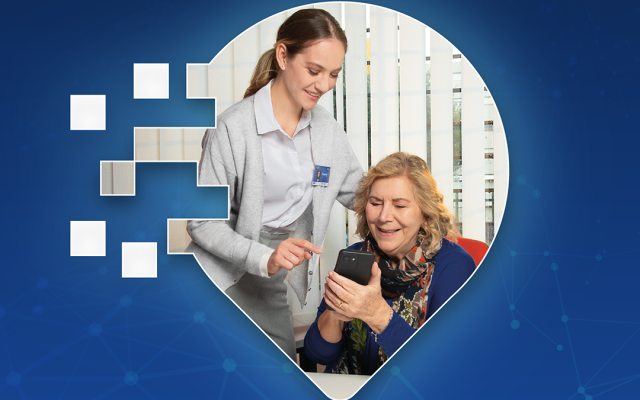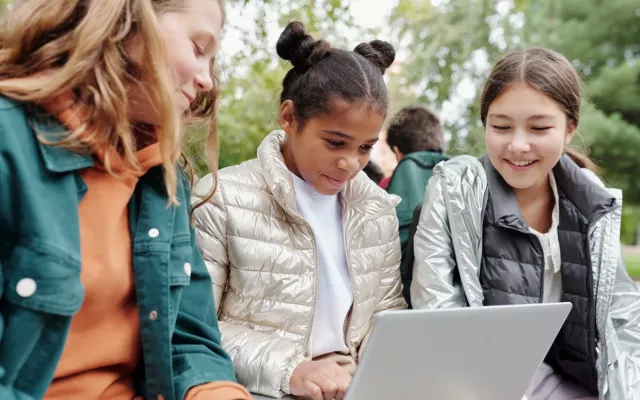Breaking Barriers: a commitment to more conscious digital teaching
Attentive to changes in society and their impact on students, Alessandra Carta, a teacher at the Centro storico Pestalozzi comprehensive school in Florence, chose to participate in the Breaking Barriers training programme, driven by curiosity and a desire to offer her students tools to understand and use digital technologies in a conscious way. For years, she has been addressing issues related to online risks, cyberbullying and fake news with her classes, and she seized the opportunity to explore the topic of artificial intelligence in order to update her skills and enrich her teaching with concrete and current examples.
Alessandra recounts her experience, reflecting on the value of continuing education for teachers and the importance of developing critical thinking in young people with regard to the invisible mechanisms that govern the digital platforms they use every day. Here is what she told us.
What prompted you to participate in the training courses offered as part of the Breaking Barriers project?
"I learned about the project through the Fondazione Mondo Digitale, which in recent years had already carried out training activities on the risks of the Internet for my students. I was motivated to participate by my curiosity to explore these issues from a teacher's perspective, in order to be better prepared to guide young people towards a conscious use of digital technologies. There is more and more talk about artificial intelligence, and I wanted to understand specifically what it is and what advantages and opportunities it can offer in the teaching profession."
What struck you about the webinar you attended and why?
‘I attended the webinar on 24 March on “Artificial intelligence (AI) and machine learning: basic principles and everyday applications”. I was very impressed because it managed to make complex concepts understandable and show concrete examples of how AI is already present in everyday life, which I find very useful to share with students.’
Did you find any content or tools particularly useful for your daily work as a teacher?
"Yes, especially the explanation of the mechanisms behind online recommendations, which young people often experience as “natural” without realising it. Bringing concrete examples to the classroom and explaining how the algorithms behind the platforms they use every day work is useful for stimulating critical thinking among my students. Every year, I explore topics related to the risks of the internet, fake news and cyberbullying with my third-year students, and being able to include AI in this teaching unit today is essential because these technologies will increasingly be part of our daily lives."
Was there a moment, a transition or a concept learned during the webinars that changed the way you view or approach a digital issue with your class?
Yes, in particular the reflection that even algorithms are not neutral: they can contain biases and invisibly influence our choices. This prompts me to propose a more critical discussion for the new school year on how technology not only helps us, but can also guide our behaviour without us realising it.
Do you think courses like these are important for keeping teachers up to date? What works and what could be improved?
Absolutely yes: they are valuable courses because digital technology changes quickly and as teachers we risk not having the time to keep up to date on our own. The practical approach works very well, with practical examples and real-life applications. It could be improved by dedicating more time to final questions and discussion among teachers, so that ideas and good practices can be shared. Another suggestion would be to bring the time forward so that the course ends by 5 p.m., to make it easier for those with young children to participate.
Would you like to continue this course? If so, in what form: webinars, practical workshops, working groups...?
Yes, I would like to continue with regular webinars to update on new tools or emerging issues: the webinar format allows teachers to better balance their work with family commitments. I am also very much in favour of online practical workshops or online thematic working groups to explore teaching applications together and develop activities that can be tried out immediately in the classroom.




